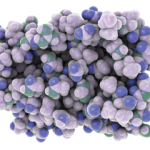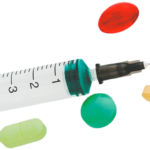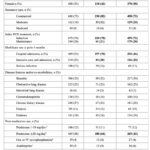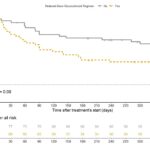Hoy et al. sought to evaluate the presence, clinical associations, and potential mechanistic roles of circulating calprotectin in a cohort of patients with primary antiphospholipid syndrome (APS) and those with antiphospholipid antibodies. Calprotectin levels were higher in patients with primary APS and those with antiphospholipid antibodies than in healthy controls. These data suggest that calprotectin has the potential to be a functional biomarker and a new therapeutic target for APS-related thrombocytopenia.
Can an App Reduce the Need for In-Person Visits?
Solomon et al. examined whether a mobile application (app) for patients with rheumatoid arthritis integrated in the electronic health record would be used by patients and rheumatologists.
Poly-Refractory Rheumatoid Arthritis: An Uncommon Subset of a Difficult-to-Treat Disease
Difficult-to-treat rheumatoid arthritis (RA) is defined as the failure of two or more classes of biologic or targeted synthetic disease-modifying anti-rheumatic drugs (DMARDs) to control active or progressive disease in patients with RA. Between 5 and 20% of patients with RA have difficult-to-treat RA.

Interferons in Systemic Lupus Erythematosus
Current knowledge of receptor-ligand interactions, cell signaling, and transcriptional regulation derive from studies of type I interferon. The design of novel therapeutics is informed by the advances in investigation of type I interferon, with the potential for important impacts on patient management.
Physicians vs. Artificial Intelligence
When patients have questions, can artificial intelligence (AI) generate accurate, comprehensive answers? Ye et al. conducted a single-center, cross-sectional survey of rheumatology patients and physicians in Edmonton, Canada, to explore that question.
Genetic Influence on OA
In 59,970 twins aged 35 years or older, Magnusson et al. compared how much genetics contributes to osteoarthritis (OA) with the genetic contribution to other rheumatic/musculoskeletal diseases (RMDs) in the same population, while exploring the role of shared genetics in OA and other RMDs. The researchers used data from the Swedish Twin Registry, in addition to the Swedish National Patient Register. They concluded that the heritability (i.e., the total genetic contribution to a trait) of OA is relatively large compared with other rheumatic musculoskeletal diseases.

Long-Term Voclosporin Treatment Looks Promising for Lupus Nephritis Patients
AURORA 2, a double-blind, phase 3 study, evaluated the long-term safety, tolerability and efficacy of voclosporin compared to placebo in patients with lupus nephritis receiving an additional two years of treatment following completion of the one-year AURORA 1 study. Patients enrolled in AURORA 2 continued to receive the same treatment randomly assigned in AURORA 1, in combination with mycophenolate mofetil and low-dose glucocorticoids. Saxena et al. propose that the rapid renal response achieved with voclosporin treatment has long-term benefits, supported by stable kidney function over the three-year treatment period.

Trimethoprim Sulfamethoxazole Prophylaxis & Infections in Patients with GPA
SAN DIEGO—In their study, Effect of Trimethoprim Sulfamethoxazole Prophylaxis on Infections During Treatment of Granulomatosis with Polyangiitis with Rituximab: A Population-Based Study, Mendel et al. assessed the relationship between trimethoprim sulfamethoxazole (TMP-SMX) and infection in patients undergoing treatment for granulomatosis with polyangiitis (GPA). Background/Purpose Infections during treatment of anti-neutrophil cytoplasmic antibody (ANCA) associated vasculitis (AAV)…

Reduced-Dose Glucocorticoids for GPA & Microscopic Polyangiitis
SAN DIEGO—In a study titled Real-Life Use of the PEXIVAS Reduced-dose Glucocorticoid Regimen in Granulomatosis with Polyangiitis and Microscopic Polyangiitis, Nagle et al. evaluated the efficacy and safety of the reduced-dose glucocorticoid regimen in a real-world setting. Background/Purpose Glucocorticoids (GCs) in combination with rituximab (RTX) or cyclophosphamide are the cornerstone of treatment for patients with…

Risks of Severe HCQ Non-Adherence
Lower HCQ Serum Levels Associated with SLE Flare, Damage & Mortality Background & Objectives: Nguyen et al. set out to assess the consequences of severe non-adherence to hydroxychloroquine (HCQ) by measuring hydroxychloroquine serum levels, risks of systemic lupus erythematosus (SLE) flares, damage and mortality over five years of follow-up. Methods: The Systemic Lupus Erythematosus International…
- « Previous Page
- 1
- 2
- 3
- 4
- …
- 15
- Next Page »